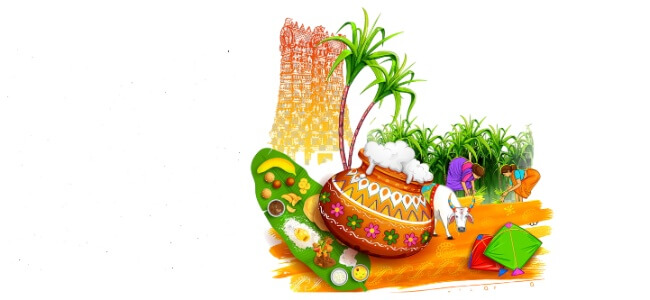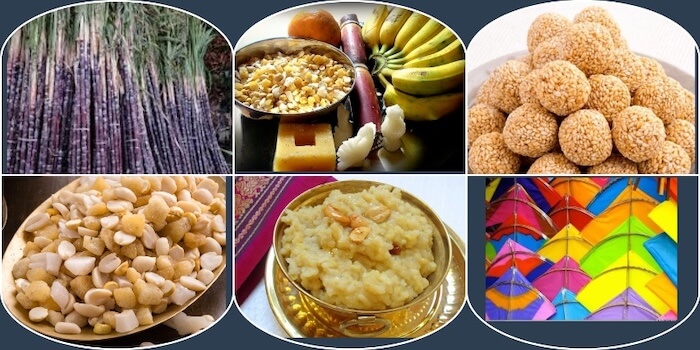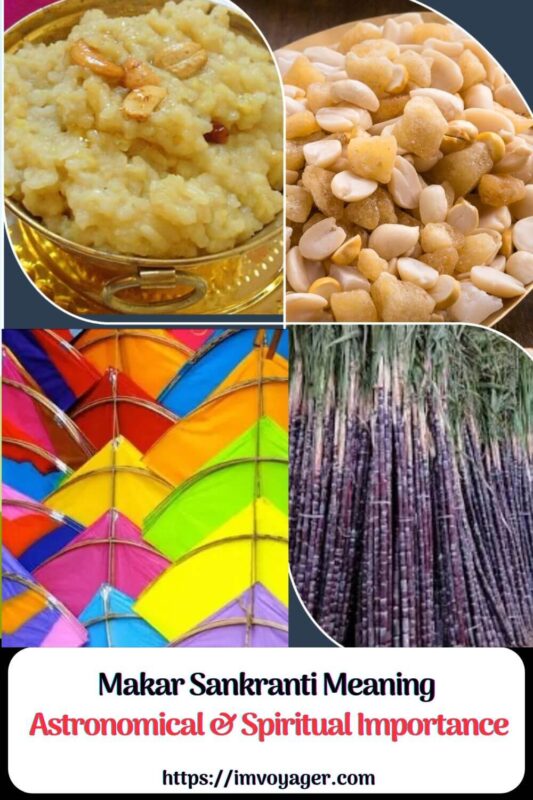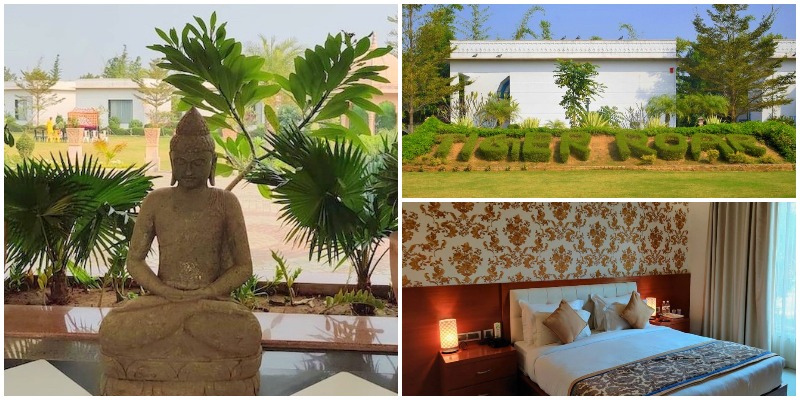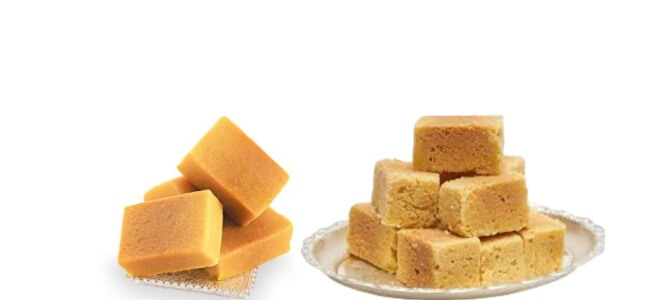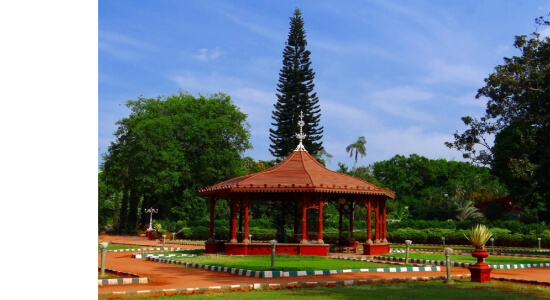India is a land of festivals, with celebrations filling the calendar year. Starting with the new year, we have Makar Sankranti, a festival that sets the tone for joy, gratitude, and cultural unity. Festivals in India are diverse, reflecting the country’s rich cultural heritage and traditions. From Diwali to Holi, and Eid to Christmas, each celebration carries its unique charm and significance. This post is about Makar Sankranti meaning and explores the vibrant traditions, rituals, and spiritual significance associated with this festival. Let us delve into what makes Makar Sankranti a cherished occasion for millions.
Table of Contents
Makar Sankranti Festival | Makar Sankranti Celebrations
Makar Sankranti is celebrated annually on January 14th or 15th, marking the Sun’s transition into the Capricorn zodiac sign, or Makara Rashi. It is observed across India under various names and with regional customs. In Tamil Nadu, it is known as Pongal, a four-day harvest festival dedicated to the Sun God. Gujarat celebrates it as Uttarayan, renowned for its vibrant Kite Festival. Punjab and Haryana mark Lohri, symbolizing the harvest of sugarcane. In West Bengal, it coincides with Poush Sankranti, where people take holy dips at Ganga Sagar and prepare sesame-jaggery sweets. Despite the variations, the underlying spirit of gratitude and renewal unites the celebrations.
About Makar Sankranti
The festivities of Makar Sankranti include a mix of spiritual and cultural rituals. Kite flying is a popular activity, especially in western India, where the skies come alive with colourful kites. People take holy dips in rivers, believing it purifies the soul and brings blessings. Traditional delicacies like tilgul, chikki, and pongal are prepared and shared, spreading sweetness and goodwill. Communities gather for fairs, bonfires, and cultural performances, making it a time of social bonding. This festival also emphasizes charity, as people donate food and clothes to those in need, reflecting the values of compassion and generosity.
Makar Sankranti Meaning
Let us delve deep into understanding Makar Sankranti meaning. At its core, Makar Sankranti signifies the Sun’s transition into Capricorn and the start of its northward journey, Uttarayan. It marks the end of the winter solstice and the advent of longer, warmer days. For Hindus, this transition symbolizes the triumph of light over darkness and the renewal of life. Makar Sankranti is a time to reflect on spiritual growth, foster positivity, and celebrate nature’s abundance.
The Spiritual Meaning of Makar Sankranti
Makar Sankranti marks the Sun’s transition into Capricorn (Makara Rashi) and the beginning of Uttarayan, the Sun’s northward journey. This astronomical event holds immense significance in Hinduism, symbolizing the triumph of light over darkness and the renewal of energy. The festival is a time for spiritual reflection and self-purification, encouraging individuals to seek higher consciousness. Charitable acts, such as donating food and clothing, are considered integral, embodying the values of generosity and compassion.
Spiritual Significance Of Makar Sankranti | The Significance of Makar Sankranti Across India
Makar Sankranti is celebrated in diverse ways across India, reflecting the country’s cultural richness. In Tamil Nadu, the four-day Pongal festival honours the Sun God and marks agricultural prosperity. Gujarat celebrates Uttarayan with a spectacular Kite Festival, where communities bond over friendly competitions. In Punjab and Haryana, Lohri is a bonfire festival celebrating the harvest of sugarcane, while in West Bengal, Poush Sankranti involves rituals like holy dips and the preparation of traditional sweets.
Despite regional variations, the essence of Makar Sankranti—celebrating the Sun’s transition and the abundance of the harvest—remains universal. This festival fosters gratitude, unity, and joy, making it a cornerstone of Indian cultural heritage.
Makar Sankranthi – Traditional Rituals and Practices
The rituals of Makar Sankranti reflect gratitude for nature’s bounty and joy for the harvest season. Kite flying is one of the most iconic traditions, especially in Gujarat and Rajasthan, symbolizing the ascent of human aspirations closer to the divine. Holy dips in sacred rivers like the Ganga are believed to purify the soul and attract divine blessings.
Sharing delicacies made of sesame and jaggery is another cherished custom, symbolizing the sweetness of relationships. Farmers honour their cattle, acknowledging their role in agriculture, while communities come together for fairs and cultural performances. These traditions highlight the spirit of togetherness and reverence for nature.
The Role of Makar Sankranti in Indian Agrarian Society | Harvest Festival
Makar Sankranti is deeply rooted in India’s agrarian culture. As a harvest festival, it marks the culmination of hard work and celebrates abundance. Crops like rice, sugarcane, and sesame are harvested during this period, making it a time of prosperity for farmers.
The festival rituals, such as offering gratitude to the Sun God and seeking blessings for future harvests, underscore the connection between humans and nature. It is also a time for renewing agricultural tools and participating in rural fairs that showcase traditional crafts, music, and dance. These practices celebrate the symbiotic relationship between agriculture and community life.
Mythological Stories Associated with Makar Sankranti
Makar Sankranthi is steeped in mythology, enriching its cultural significance. One popular tale involves Surya Dev (the Sun God) visiting his son Shani, symbolizing familial bonds and forgiveness. Another story recounts King Bhagirath’s efforts to bring the Ganges to Earth, commemorated through holy dips in rivers during the festival.
The Makar Sankranthi festival is also associated with enlightenment and prosperity, as the Sun God is believed to bestow blessings of energy and vitality. These stories reinforce themes of renewal, hope, and spiritual growth, adding depth to the celebrations.
Astronomical Importance of Makar Sankranti
The astronomical significance of Makar Sankranti lies in its marking of the Sun’s transition into Capricorn, or Makara Rashi, and the beginning of Uttarayan. This transition signifies the end of the winter solstice and the start of longer days, symbolizing light’s victory over darkness.
In ancient Indian astronomy, this event was crucial for agricultural planning, as it marked the onset of favourable weather conditions. The alignment of celestial bodies during Makar Sankranti is also believed to have positive effects on human well-being, enhancing energy levels and spiritual consciousness. This astronomical event thus intertwines science and spirituality, emphasizing humanity’s connection to the cosmos.
Kite Flying: Tradition and Joy – Makar Sankranti Celebrations | Uttarayan
Kite flying is a beloved tradition of Makar Sankranti, especially in Gujarat, Rajasthan, and Maharashtra. The colourful kites dotting the sky symbolize freedom, joy, and the human spirit’s connection to the divine. Uttarayan, as the festival is called in Gujarat, hosts grand Kite Festivals where people of all ages participate in friendly competitions.
Flying kites under the warm winter sun are believed to have health benefits, as it promotes exposure to sunlight, boosting Vitamin D levels. Beyond its recreational value, kite flying fosters community bonding, making it an integral part of Makar Sankranti celebrations.
Makar Sankranti Pongal | Uttarayan Pongal Lohri Makar Sankranti
Makar Sankranti, Pongal, and Lohri together represent the cultural diversity of India while sharing common themes of gratitude and harvest celebrations. Pongal in Tamil Nadu is a four-day festival of abundance, Uttarayan in Gujarat celebrates community joy with kites, and Lohri in Punjab symbolizes warmth and togetherness around bonfires. These festivals, though distinct, reflect the shared spirit of Makar Sankranthi.
Makar Sankranti Food
Food is a vital part of Makar Sankranti, with each region offering unique culinary delights. In Maharashtra, sesame-jaggery sweets like tilgul are exchanged with the saying “Tilgul ghya, god god bola” (Take these sweets, and speak sweetly). Tamil Nadu’s Pongal festival features dishes like sweet and savory pongal made of rice and lentils. Gujarat’s feasts include Undhiyu (a mixed vegetable dish) and jalebi.
In Punjab, Lohri celebrations include Makki di roti and sarson da saag, paired with Gajak and rewri. West Bengal’s Poush Sankranti is marked by Pithas, traditional rice cakes stuffed with coconut and jaggery. These regional delicacies add flavour and diversity to Makar Sankranti celebrations.
Makar Sankranti – FAQs
Makar Sankranthi is one of India’s most significant harvest festivals celebrated with diverse regional traditions. Here, we answer common questions about the festival’s meaning, rituals, and significance across India.
What is Makar Sankranti?
Makar Sankranti is a harvest festival celebrating the Sun’s transition.
Why is Makar Sankranthi celebrated?
Makar Sankranthi is celebrated to mark the Sun’s northward journey, Uttarayan.
What is the spiritual significance of Makar Sankranti?
Makar Sankranti symbolizes renewal and the triumph of light.
Which states celebrate Makar Sankranthi?
Makar Sankranthi is celebrated in Karnataka, Andhra Pradesh, Telangana, Tamil Nadu, Maharashtra, Gujarat, Punjab, Haryana, West Bengal, Uttar Pradesh etc. with regional variations.
What foods are prepared during Makar Sankranti?
Sesame sweets, Pongal, Undhiyu, and more.
What is the significance of kite flying?
It symbolizes joy and a human-divine connection.
What is Uttarayan?
The Sun’s northward movement, starting on Makar Sankranti.
How is Lohri related to Makar Sankranti?
Both Lohri and Makar Sankranti are celebrated as the harvest season.
What is Pongal?
Tamil Nadu’s four-day harvest festival.
What is the meaning of tilgul?
Sesame-jaggery sweets symbolise sweetness in relationships.
We hope this post about Makar Sankranti meaning, its astronomical significance, spiritual importance, and vibrant celebrations across India has enriched your understanding of the Makar Sankranthi festival. Share your thoughts and experiences about this vibrant festival in the comments section below. Do not forget to share this post on Makar Sankranthi Pongal, Uttarayan, and Lohri with your family and friends.
Join us for more insights into India’s cultural heritage and vibrant traditions. Subscribe to our blog and newsletter for exclusive stories, expert guides, and travel inspiration. Follow us on Facebook, Instagram, X (formerly Twitter), LinkedIn, and YouTube for daily highlights and updates. Let us celebrate and explore the wonders of India together!
Ready to embark on your next adventure? Subscribe to our blog and newsletter for exclusive travel insights, fascinating stories, and all the inspiration you need to explore new destinations. Dive deeper into India’s vibrant culture, stunning landscapes, delectable cuisine, and timeless traditions by visiting our YouTube channel, Travel With Sandy & Vyjay. Let our journeys spark your wanderlust and inspire your travels.
Stay connected with us on Facebook, Instagram, X (formerly Twitter), LinkedIn, and YouTube for daily highlights of our adventures. Do not miss out—subscribe to our Voyager Travel Bytes newsletter for unique content, delivered straight to your inbox or WhatsApp. Join our Instagram community for a daily dose of wanderlust, and let us help turn your travel dreams into reality with unforgettable experiences. Together, let us explore the world and create cherished memories!
We are a reader-supported site. This means, at no additional cost to you, we may earn a small commission if you book a flight or hotel, or make a purchase through one of our affiliate links. Thank you for your support!
Flights – Air India (Domestic) or Air India (International), or Priceline
Tours – Click to book top tours around the world. Book tours and activities here.
Experiences – Book your next unforgettable experience here, with flexible bookings and free cancellations. Reserve tours and activities now and pay later.
Hotels – Click to book the best hotels/resorts. Choose the best stay options with TripAdvisor or Hotels.com, or HotelsCombined
Travel Insurance – Click to book Travel Insurance that covers a range of travel insurance and safety services including medical emergencies, lost luggage, trip cancellation and more
Visas and Travel Documents Application – Click here for Online Travel Visa Check
Online Passport Photo – Get Your Passport Photo Online here

Do You Love Traveling?
Do you want to know how to travel the world? We have put together a very useful travel resources page with the best travel tips. Go check it out now. Thanks for visiting our site Voyager - imvoyager.com and taking the time to read this post! If you wish to collaborate/work with us then reach us at imvoyager18@gmail.com We’d love it if you’d comment by sharing your thoughts on this post and share this post on social media and with your friends. Follow our journey on our social media channels: Facebook X Instagram Pinterest YouTube
Start dreaming about your next adventure with Tripadvisor. Book your next unforgettable experience here with flexible bookings and free cancellations.
Flight booking online at the best fare
60+ Million Users Trust TripAdvisor With Their Travel Plans. Shouldn't You?
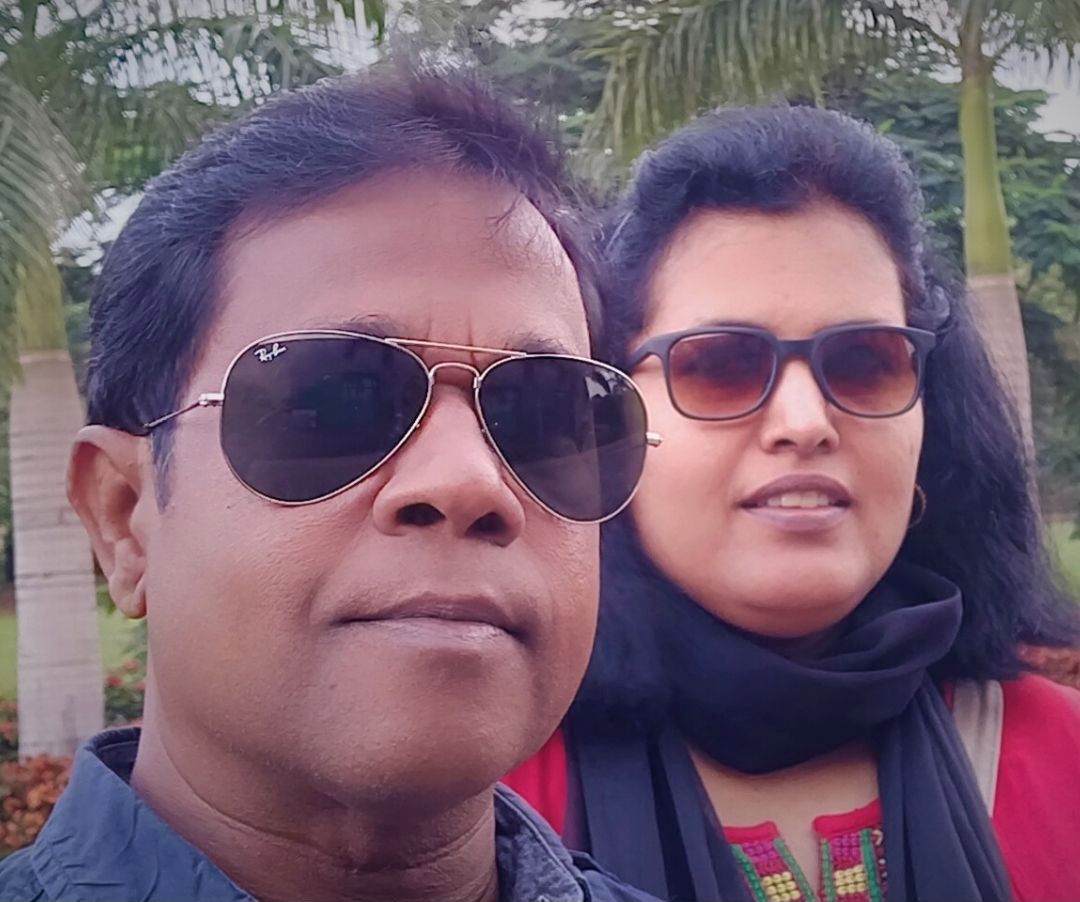
Sandy & Vyjay are a husband and wife duo who are travel content creators. They are co-founders of this travel website and are one of the leading travel content creators in India.
Sandy & Vyjay quit their successful corporate careers to pursue their passion for travel and writing full-time. Their dedication has earned them the “Best Travel Writer” award and numerous accolades on both national and international stages. Focusing on India’s destinations, heritage, and culture, they are passionate advocates for nature and the environment. Through their content, they promote ecotourism and sustainable travel, inspiring others to explore and preserve the beauty of India.
